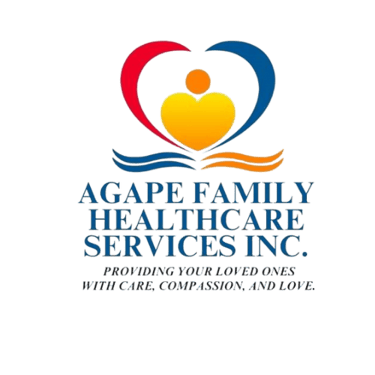Bridging the Care Gap: Why Access to Home Care is a Public Health Priority
Healthcare often focuses on hospitals, clinics, and emergencies. Yet, one of the most critical spaces in medicine is the home. For seniors, children with special needs, and individuals with chronic conditions, home care is not just a convenience — it’s survival. Across Georgia, too many families still face long waitlists, complex paperwork, or limited resources that delay essential services like CCSP, GAPP, and Medicaid waiver programs. These barriers don’t just affect quality of life — they put lives at risk. Missed medications, skipped therapies, and caregiver burnout are silent crises unfolding daily. Agape Family Healthcare Services is committed to closing these gaps. By guiding families through enrollment, offering trained professionals, and advocating for expanded access, we ensure care reaches where it’s needed most — at home. Home care should not be a privilege; it is a public health necessity. Just as we invest in hospitals and emergency response, we must invest in keeping people safe and supported in their homes. Because when families receive proper care at home, communities grow stronger, healthier, and more resilient.
8/29/20255 min read


The Importance of Home Care in Healthcare
Home care serves as a vital pillar within the healthcare system, transcending the notion of an alternative to hospital care. It is increasingly recognized as an essential component for effective chronic disease management, rehabilitation, and end-of-life care. The increasing complexity of healthcare needs, especially among vulnerable populations, underscores the significance of home care services.
Statistics indicate a burgeoning demand for home care, particularly among seniors, children with special needs, and individuals managing chronic conditions. According to the Centers for Disease Control and Prevention (CDC), more than 80% of older adults have at least one chronic disease, and more than 77% have two or more chronic health issues. This statistic amplifies the necessity for specialized home care offerings that cater to the unique needs of these individuals, providing not only medical support but also promoting independence and quality of life.
Moreover, personalized care is a cornerstone of effective home care services. Tailoring care plans to individual patients enhances patient outcomes significantly. Personalization fosters a sense of comfort and security, which is particularly crucial for those with complex healthcare needs. Studies have shown that participants in personalized home care programs often experience improved health outcomes, reduced hospital readmissions, and increased satisfaction with their care. The integration of family members into the care process further strengthens support networks, positively impacting recovery and overall wellbeing.
In light of these factors, home care emerges not just as a viable solution but as a necessary intervention in a comprehensive healthcare strategy. By prioritizing home care access, healthcare systems can better serve at-risk populations and allocate resources more efficiently, ultimately enhancing the effectiveness of our healthcare landscape.
Barriers to Accessing Home Care Services
Accessing home care services remains a significant challenge for many families, primarily due to a variety of barriers that impede their ability to obtain timely and adequate support. One of the most prominent obstacles is the existence of long waitlists for essential programs, including the Community Care Services Program (CCSP), the Georgia AIDS Drug Assistance Program (GAAP), and various Medicaid waivers. These waitlists can extend for months, leaving families in limbo while their loved ones struggle with health issues that could be alleviated with appropriate home care.
In addition to lengthy wait times, the complexities associated with the required paperwork can deter families from pursuing home care assistance. The application process often demands extensive documentation and a clear understanding of eligibility criteria, which can vary significantly from one program to another. Many families may find themselves bewildered by this bureaucracy, leading to incomplete applications and further delays in receiving necessary support. This complexity is particularly detrimental for individuals who are already caregiving, as they may lack the time or resources to navigate the convoluted system of home care services.
Moreover, limited resources within the healthcare system exacerbate these challenges. Providers of home care services may struggle with manpower issues, leading to constrained service availability. This scarcity often forces families to make difficult decisions about their loved ones' care, which can contribute to adverse health outcomes such as hospital readmissions or declining health status. Additionally, personal stories illustrate the emotional toll these barriers impose on families. For example, one family shared their experience of waiting over six months for a home care aide, highlighting the stress and uncertainty they faced during this period. Such experiences underline the urgent need for addressing barriers to home care services as a public health priority.
The Consequences of Limited Home Care Access
Access to home care services is a crucial element in ensuring the health and well-being of patients, particularly those with chronic illnesses or disabilities. When individuals experience inadequate access to home care, the repercussions can be profound, often resulting in a cascade of negative health outcomes. One significant consequence is the increased likelihood of missed medications. When patients do not receive timely assistance in managing their medications, they may inadvertently skip doses, leading to worsening health conditions and, in some instances, hospitalizations.
Additionally, the lack of access to necessary therapies brings about critical setbacks in rehabilitation and recovery. For instance, regular physical therapy is essential for patients recovering from surgeries or strokes. When these therapies are regularly missed due to limited home care support, patients may experience delays in their recovery, which can severely affect their mobility and overall quality of life. Over time, the cumulative effect of such missed treatments can escalate into severe health crises, necessitating more intensive, costly interventions.
The implications of limited home care access extend beyond the individual; families bear a heavy burden. Caregiver burnout emerges as a significant concern when family members take on the responsibility of providing care without adequate support. Overworked and stressed caregivers may struggle to meet the demands of their loved ones, leading to diminished mental health and potential lapses in the quality of care provided. This situation can create a vicious cycle that negatively impacts not only the patient but also the caregiver's health.
Furthermore, the healthcare system itself feels the repercussions of inadequate home care access. Increased hospital admissions, emergency room visits, and prolonged recuperation times place additional strain on healthcare resources and contribute to rising healthcare costs. Research has consistently shown that prioritizing home care access can mitigate these issues, demonstrating a clear link between comprehensive home care support and improved public health outcomes.
Strategies for Improving Access to Home Care
Addressing the care gap in home care services requires a multifaceted approach that includes policy reforms, increased funding, and greater community involvement. One of the primary strategies is to streamline the application process for home care programs. Simplifying paperwork and eligibility requirements would make it easier for individuals to access these vital services. Policymakers should consider leveraging technology, such as online application systems, to enhance accessibility and convenience for applicants. By minimizing bureaucratic hurdles, more families can benefit from home care programs that support their healthcare needs.
In addition to process improvements, increasing funding for home care services is crucial. This investment can take various forms, including direct financial support for existing programs and subsidies for families seeking assistance. Enhanced funding can lead to higher quality services, trained personnel, and better equipment, ensuring that families receive the support they need. It is essential for government entities at both state and federal levels to prioritize home care funding, recognizing that this investment not only improves individual well-being but also reduces long-term healthcare costs.
To promote awareness of available resources, public awareness campaigns should be launched, targeting both healthcare professionals and the general public. These campaigns can disseminate information about the benefits of home care, eligibility requirements for various programs, and the range of services provided. Education around this issue will empower families to seek assistance and decrease the stigma often associated with home care services.
Innovative models of care, such as community-based health initiatives and collaborative care models, have proven effective in other regions. These alternatives can serve as templates for improvement within Georgia. Lastly, fostering community engagement and support systems is vital for creating a sustainable home care framework. Local organizations, volunteers, and healthcare providers can collaborate to develop networks that facilitate access to services, ensuring that no one falls through the cracks in the healthcare system.
corporate@afhcs.com
470-982-CARE (2273)
Follow Us
6470 E Johns Crossing Ste 100
Johns Creek, GA 30097 USA
Fax: (470) 819-5215
Contact Us
Follow us on social media to get the latest updates about our services and care packages.
